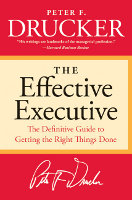I do not know how many of you are familiar with the phrase “Death by PowePoint”. In a few words, it’s the terrible boredom that the audience of a slides based presentation must endure most of the times. As my brother said one day, many presentations have the “Point” but are lacking the “Power”. Not long ago, while looking for some materials needed for a presentation I found a very interesting book, “Presentation Zen” written by Garr Reynolds, which, in fact, I highly recommend it to those who want to improve their preparation and public presentation skills.
The book contains numerous interesting ideas but I will focus only on one of them. One of the chapters referring to the preparation phase has the name: “Planning Analog” and it starts with what Steve Jobs said, about 20 years ago, while talking about personal computer potential: “What a computer is to me is it’s the most remarkable tool that we’ve ever come up with, and it’s the equivalent of a bicycle for our minds.” The question is: in design phase, is the computer really like a bicycle for our minds? The author’s answer, in the context of slides preparation, is negative.
At the beginning I was a little surprised by the idea of using pen and paper in the ideas design phase as I know there plenty of software applications on the market claiming creativity enhancement. What’s the reason for this idea? I found two answers based on my own experience:
- Any program that I used was created by a different person with different thinking patterns, and, because of that, it will direct my creativity in a very specific way. In other words, my thoughts will have to adapt to the model the program is providing me.
- The computer became an instrument used in too many activities: communication, creation, entertainment, work and so on. Personally, I find it difficult to focus as all the time something else will appear that distracts me, either online or offline.
As you have in front of you only a sheet of white paper, both problems disappear. It will be just you, together with your thoughts. As the mathematician Christopher Zeeman said: “Technical skills are the master of complexity while creativity is the master of simplicity”. The simple act of placing ideas on the paper is natural and very powerful. Of course, once your thoughts took shape and from chaos a clear line of ideas appeared, the computer becomes an excellent tool. Used with skill can save many hours of hard work and many precious resources. But in the creation and design phase, it just doesn’t seems to be the right tool.
One interesting problem comes to my mind: for the generation that was born with a PC in their home, will the situation be the same? It’s likely to be different. The human beings have an stunning capacity to adapt to the environment and, probably, the new generation will loose the appeal for pen and paper. But for us, the ones who learned to write on paper before even seeing a keyboard, the magic of these simple, but so powerful instruments remains: pen and paper.




